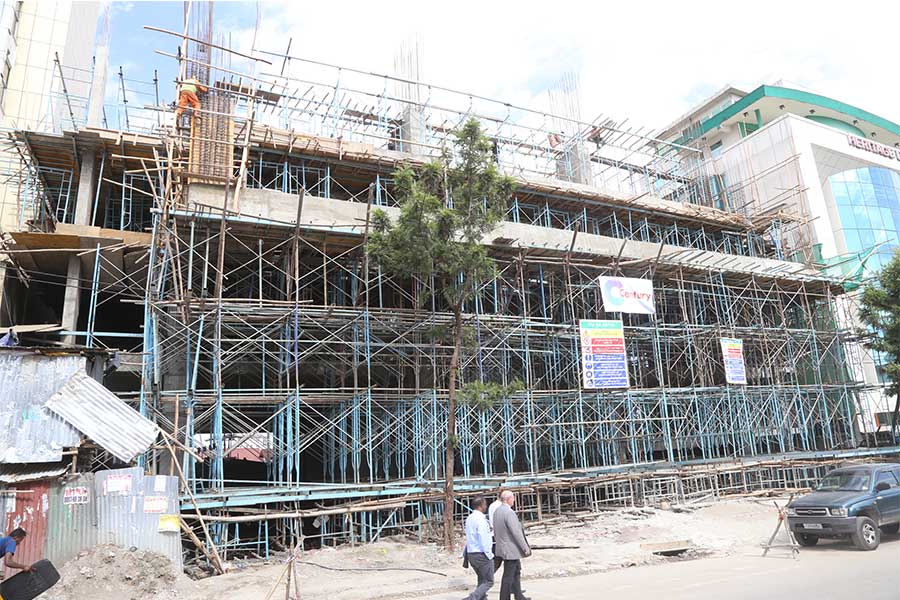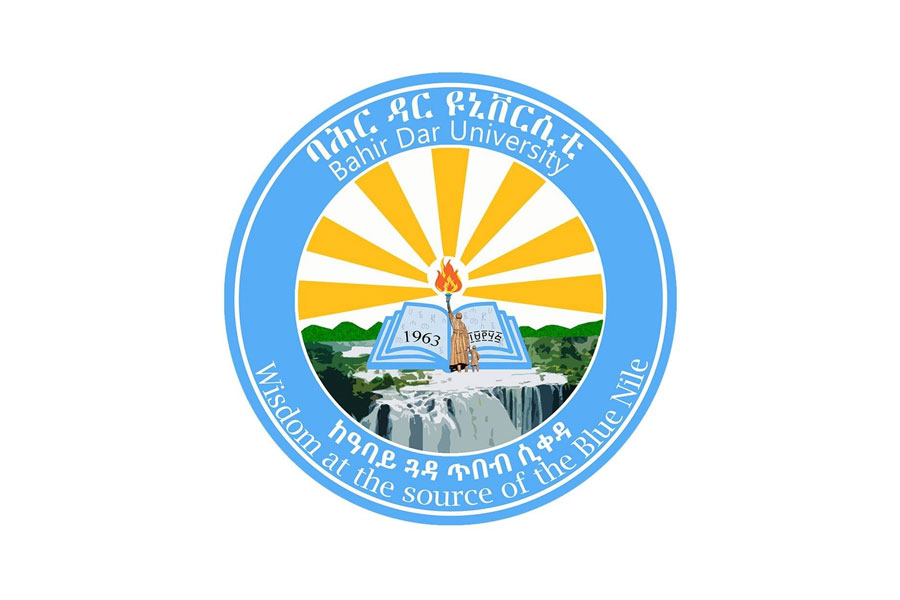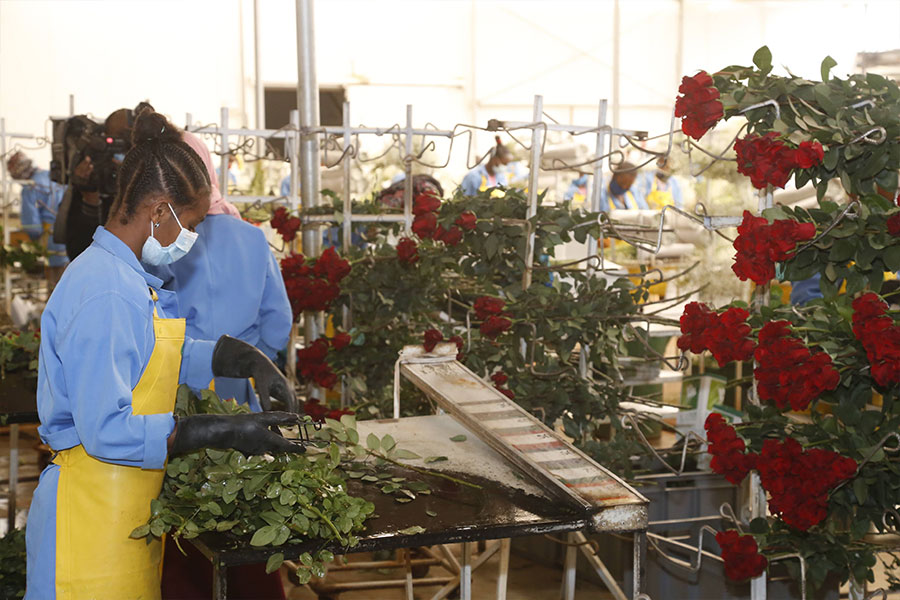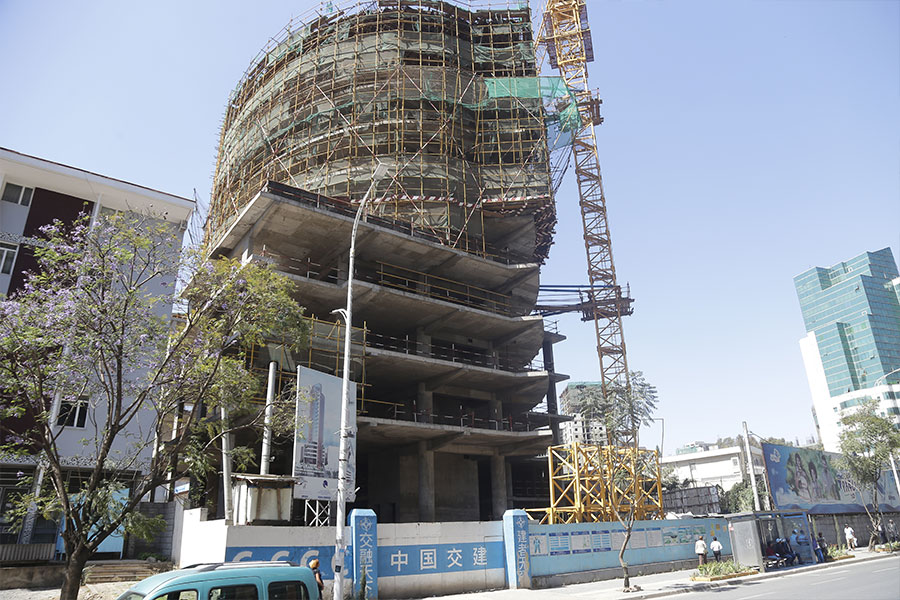
Fortune News | May 04,2024
Companies in the construction industry are worried about meeting the annual gross revenue requirements as construction input costs skyrocket. The mounting prices of steel and cement have become a barrier for contractors to advance their grades.
This has led regulators at the Ethiopian Construction Authority to revise a directive governing construction registration and certificate of companies and professionals for the second time in a few years. The draft is expected to be completed in two months.
It will lower the capital requirement and narrow the contractor grading system in an industry growing by an average of 15pc over a decade, higher than any other economic sector.
A year ago, the Ministry of Urban Development & Construction revised the directive, setting the minimum turnover for all but grade-one contractors to over 350 million Br. A grade-two contractor was required to register a 300 million Br turnover, 50 million Br lower. The requirements were halved for grades three and above. The directive also fails to clarify the criteria to qualify a professional.
Biruk Abera, a grade-three contractor, started nine years ago with 45,000 Br in paid-up capital, handling four projects worth 350 million Br. Biruk, the major shareholder, believes demands in high annual turnover need to be considered for larger contractors.
“They can’t compete in giant projects,” he told Fortune.
A study conducted by professionals in the industry echoed his position, recommending that the Authority lower the annual turnover by 30pc.
“The study was helpful,” said Meaza Gebre Abizigi, the Authority’s construction code and standards director.
Experts at the Authority are taking assessments to set a project cost margin considering the costs of grade-one to grade-three contractors prohibited from signing contracts below a certain threshold. The limitation led contractors to diversify their portfolios to other African countries.
The construction industry is in paralysis despite hogging public projects and private investments. Grade-one contractors complain of the inadequate workforce, capacity limitation to manage projects and stiff financial and technical requirements. They take projects below their capacity, competing against low-grade contractors.
Of the 32 major construction projects in the country five years ago, 80pc were contracted to Chinese firms, known for their better performance and delivery records outdoing local and international competitors.
“Contractors and construction companies are struggling to compete in the market,” said Girma Habtemariam, president of the Contractors’ Association, formed 30 years ago, lobbying for the industry.
Over 20,000 construction companies have been registered to work in an industry which accounts for 21pc of the GDP and remains one of the largest employers.
The Association is scheduled to raise the issues with the revised draft before it is sent to the Ministry for approval. Contractors for water works are also included in the draft directive, whose registration and licensing were added by the Construction Authority a year ago.
“The regulations need consistent updates,” said Girma. “The market’s volatility is inevitable.”
Samson Cherinet, a grade-one Contractor, has been in business for over 10 years. He took over four projects worth three billion Birr, such as the Mizan Aman and Metu airport projects.
He acknowledged contractors' limitations in delivering projects on schedule and within cost, recommending authorities consider the rising costs of construction inputs while revising the directive.
“It would be better to distribute projects among various companies than awarding them all to one big contractor,” he told Fortune.
The previous directive drafted by experts from the Ministry sought to limit the equity shares held by Chief Executive Officers (CEOs), imposing that they should not take more than 20pc shares in the companies they manage.
Biruk wants to see the revised directive reconsider the shares handed to CEOs which he said opens doors for unlawful deals with the owners of construction companies to save the share amounts.
Abebe Dinku (PhD), a professor of civil engineering at Addis Abeba University, doubts the argument raised on high-grade contractors dominating the market and in projects lower than their capacity. However, encouraging contractors to participate in international tenders would be a way to advance the industry through knowledge transfer.
“I doubt their portfolios and professionals making them competent in the international markets,” he told Fortune.
PUBLISHED ON
Oct 22,2022 [ VOL
23 , NO
1173]

Fortune News | May 04,2024

Agenda | Apr 15,2023

Radar | Dec 07,2019

Fortune News | Dec 11,2021

Radar | Jan 09,2021

Fortune News | Aug 06,2022

Fortune News | Jan 25,2020

News Analysis | Apr 09,2022

Fortune News | Jan 14,2023

Fortune News | Jul 13,2024

Dec 22 , 2024 . By TIZITA SHEWAFERAW
Charged with transforming colossal state-owned enterprises into modern and competitiv...

Aug 18 , 2024 . By AKSAH ITALO
Although predictable Yonas Zerihun's job in the ride-hailing service is not immune to...

Jul 28 , 2024 . By TIZITA SHEWAFERAW
Unhabitual, perhaps too many, Samuel Gebreyohannes, 38, used to occasionally enjoy a couple of beers at breakfast. However, he recently swit...

Jul 13 , 2024 . By AKSAH ITALO
Investors who rely on tractors, trucks, and field vehicles for commuting, transporting commodities, and f...

Jul 5 , 2025
Six years ago, Ethiopia was the darling of international liberal commentators. A year...

Jun 28 , 2025
Meseret Damtie, the assertive auditor general, has never been shy about naming names...

Jun 21 , 2025
A well-worn adage says, “Budget is not destiny, but it is direction.” Examining t...

Jun 14 , 2025
Yet again, the Horn of Africa is bracing for trouble. A region already frayed by wars...